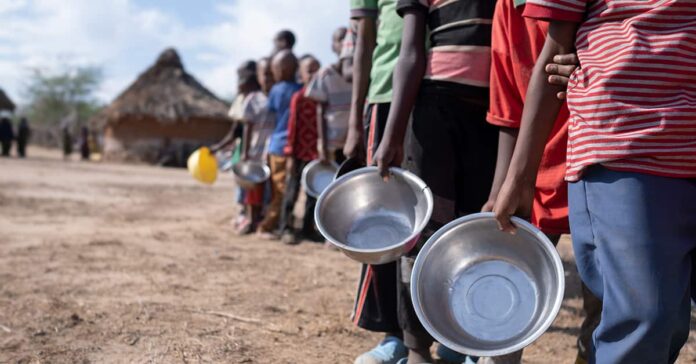BY SAM OTUONYE
As the global economy faces policy shocks and pressure, international aid organizations like UNESCO, WHO, UNDP, and WFP are re-evaluating their humanitarian policies to reflect the prevailing realities. The federal government of Nigeria has been affected by such policies, with the latest being a funding cut by the World Food Programme (WFP), which provides food and nutritional aid, particularly in the northern region.
On Thursday, the federal government expressed worry over the development, which is capable of putting 575,000 Nigerians across 115,000 households at heightened risk of starvation, malnutrition, and food insecurity. The government also highlighted that approximately 300,000 children are at risk of wasting due to the closure of 150 WFP-supported nutrition clinics in Borno and Yobe States, which could lead to further displacements and migration.
The Minister of State for Humanitarian Affairs and Poverty Reduction, Dr. Yusuf Tanko Sununu, who gave the warning in Abuja, stated, “Due to severe funding gaps, WFP has been forced to scale back its coverage, reaching only 900,000 people in August and 725,000 in September 2025, thereby leaving 575,000 individuals (approximately 115,000 households) without critical support.”
“The suspension may lead to increased food insecurity, malnutrition, and health risks, with approximately 300,000 children at risk of wasting due to the closure of 150 WFP-supported nutrition clinics in Borno and Yobe States, as well as further displacements and migration,” he added.
Sununu announced that the government would provide emergency funding to augment ongoing efforts to bridge the gap created by the suspension of Activity 1 of WFP’s Country Strategic Plan. He also outlined special interventions, including supporting local agriculture, promoting nutrition-sensitive agriculture, and enhancing resilience to climate change to address food insecurity sustainably.
He urged local and international partners to provide urgent support to complement government efforts in preventing a humanitarian crisis. “We also call on the general public to support providers of sustainable solutions to address the root causes of food insecurity and malnutrition and for strengthened collaboration and partnerships to support the most vulnerable populations,” he said.
The Nigerian federal government has recently rolled out some initiatives to improve food availability and affordability by declaring a state of emergency on food security, releasing grains and fertilizers to farmers, and considering a temporary suspension of import duties on food items. The government is also focusing on long-term solutions like boosting domestic food production and strengthening the agricultural value chain, but all these policies and programs have fallen short of addressing the issue of food insecurity considerably.

